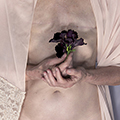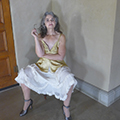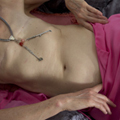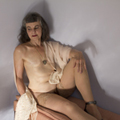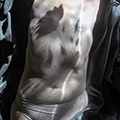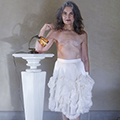
News
Unapologetic Beauty, a book for everywoman.
Unapologetic Beauty is a book that is a collaboration between me and the photographer Frances Murray.
Joanna's presentations are inspiring and vivacious. Contact her to speak to your group, organization, or institution.
The Specificity of Things That Don't Matter
A performance to be given at the Feldmar Institute, near Budapest, Hungary, in the summer of 2016. Courage as an idea and reality propels the subjects of dancing through mourning, everyday braveries, and beauty as a necessity. A gorgeous black dress sensually underlines the themes.
I began volunteering at an Arizona Oncology infusion center in Tucson, Arizona in Spring 2014. My desire to volunteer began with my experience in the Arizona Oncology infusion center where I was treated�a different one from where I work�which I write about in my book A Short Story about a Big Healing (page 22).
*Dr. Leona Downey is the breast oncologist who helped me.
The clinic in which I was treated and the one in which I work share an energy of reassurance, compassion, and communal friendliness. I felt terrified the first time that I looked into the room where I would be treated. That changed with the education session that preceded treatment and then with the first infusion. I felt loved, I felt that I was in the best of hands, and I felt free to be healthy. Within a few weeks of that first treatment I wanted to volunteer in an infusion center.
The infusion center was a community, of patients, nurses, physicians, the pharmacist, and office personnel, and I wanted to help them however I, as the particular person I am, could do that. I'd see the nurses become almost overwhelmingly busy, and I knew what it meant and how it felt to be sitting in a chair awaiting your initial infusion, to ask to see your most recent labs and assess them, to zone out during the hours of treatment, to trust the people treating you, to witness faith grow.
As a volunteer I talk with patients, bring them drinks or snacks or a warm blanket, and do a little clean-up. One regular and I talk about d�cor. Regulars are people who I see every week or every few weeks. He has 1970s taste, and sometimes shows me pictures of his latest purchase, and I am partial to modern and Zen simplicity. We have fun. With other regulars, their medical condition is the subject, or wine, or clothing. Sometimes, with regulars or those I see occasionally or for the first time, we talk about their children or having no family in Tucson, or faith, from their paganism to their Christianity. Talk is a big nourishment, a comfort food. Like homemade baked goods, which current or former patients or a nurse bring in for everyone to enjoy. One regular, who generally looks brooding, perked up tremendously when I offered him German chocolate cake. He said it was perfect, just like what his mother used to make for his birthday.
The topics of conversation are diverse, as are the patients in age, race, sexual orientation, education, and economics. Anything may come up. I see men who try to keep from weeping while they sit next to their wives who are in treatment. I participate in exchanges among patients about the state of the world. All while the nurses take care and take charge of not only the treatments but also the vibes, with their efficient responsibility, their story- and joke-telling.
When I drive away in my car, I start digesting all of the amazing occurrences, conversations, and learning that happened during those hours in that extraordinary community. I am in a state of Wow.
Only people who have had a chemotherapy experience can volunteer at an Arizona Oncology infusion center.
Visit Joanna's YouTube channel.
How moved I am by the new Self Evidence series; its beauty, generosity, and of course as "evidence" of your ongoing articulation of and activism for feminist eroticism and its inevitable evolution.
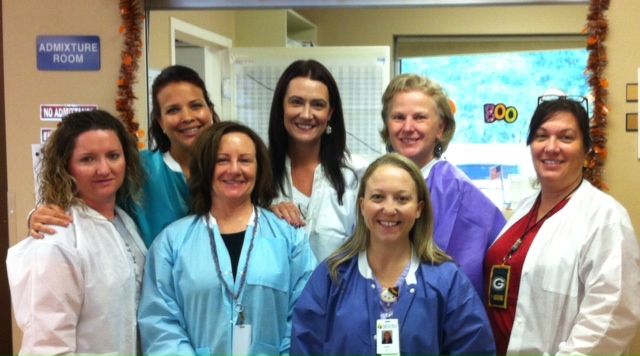
The nurses and scheduler who I work with in the clinic. Left to right, front row: Jeanne, Kellie. Left to right, back row: Diane (scheduler), Cara, AnnaMarie, Carla, Kim. Photo: October, 2014.
